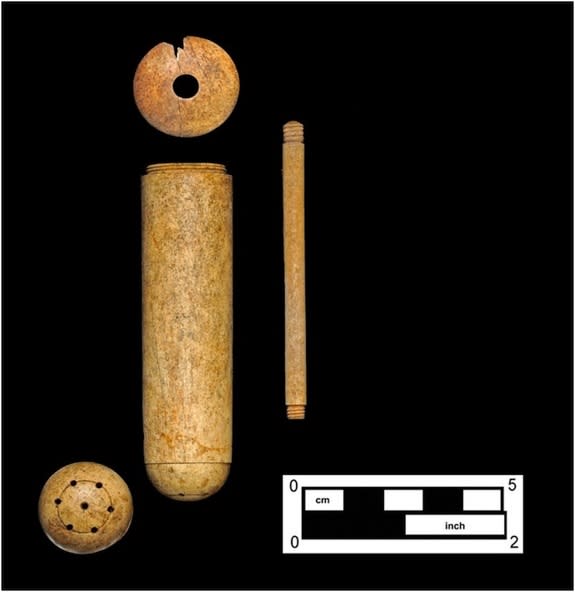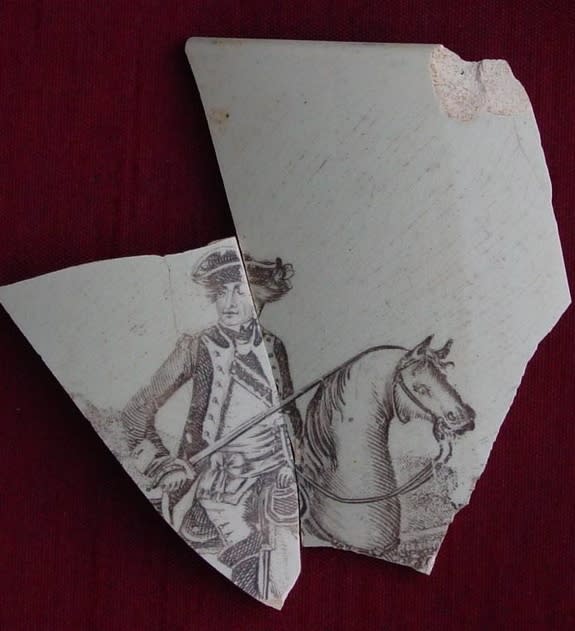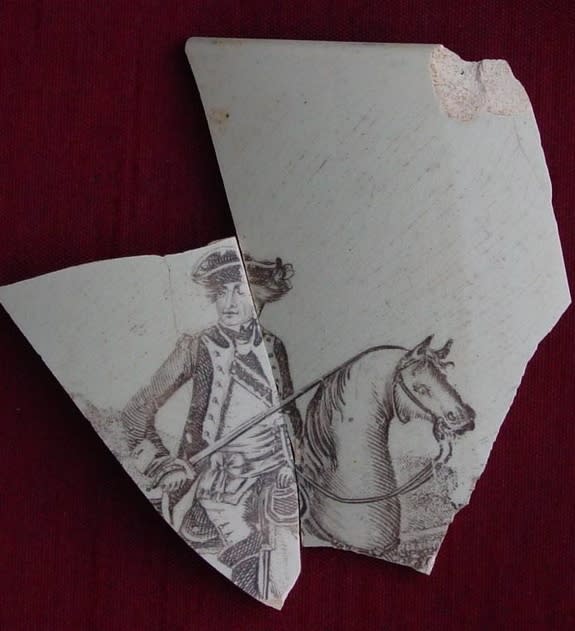NYC Artifacts, Including City Hall Douche, Get a New Home
Thousands of artifacts unearthed in New York City, ranging from a Revolutionary War-era bayonet to a 19th-century douche, are finally getting a home in Manhattan.
New York's Landmarks Preservation Commission announced that it is creating the New York City Archaeological Repository for the vast collection of artifacts owned by the city.
"It's really exciting for professional archaeologists in New York City," said Alyssa Loorya, who heads the Brooklyn-based Chrysalis Archaeological Consultants. "This is something that we have all been talking about for a very long time." [NYC Archaeology: Photos of City Hall Artifacts]
The new, climate-controlled 1,400-square-foot (130 square meters) space near Times Square won't be open to the public, but the artifacts — some of which are more 1,000 years old — will be available to scholars and museums upon request.
The city's archaeological collection, compiled through decades of excavations, had been spread out in various facilities across New York. The artifacts haven't really had a home since New York Unearthed, a museum at the South Street Seaport, closed its doors in 2005, Loorya told Live Science.
A central repository will not only make research more convenient for New York's archaeologists, but will also allow scholars to look at related objects side-by-side.
"The thing that's key in research is getting to do comparative analysis," Loorya said.
The repository will include most of the artifacts Loorya discovered over her career, including objects she and her team uncovered during a recent project at City Hall. The site in Lower Manhattan, which is now the center of the city's government, once hosted British barracks during the Revolutionary War and later an almshouse. During excavations in 2010, archaeologists found unfinished buttons made by inmates, pottery fragments decorated with an image of George Washington and a bone object that they only recently identified as a vaginal syringe, or douche.
"The creation of this repository is vitally important for the study of our city's history and the New Yorkers who live in it," Nan Rothschild, a professor of anthropology at Barnard College, said in a statement. "Artifacts are a significant source of information about New York's past and, in combination with historic documents, offer a rich and nuanced perspective on past lives."
The space for the repository was donated by the Durst Organization in honor of Rothschild, who is a member of the Durst family.
Follow Megan Gannon on Twitter and Google+. Follow us @livescience, Facebook & Google+. Original article on Live Science.
Copyright 2014 LiveScience, a TechMediaNetwork company. All rights reserved. This material may not be published, broadcast, rewritten or redistributed.





